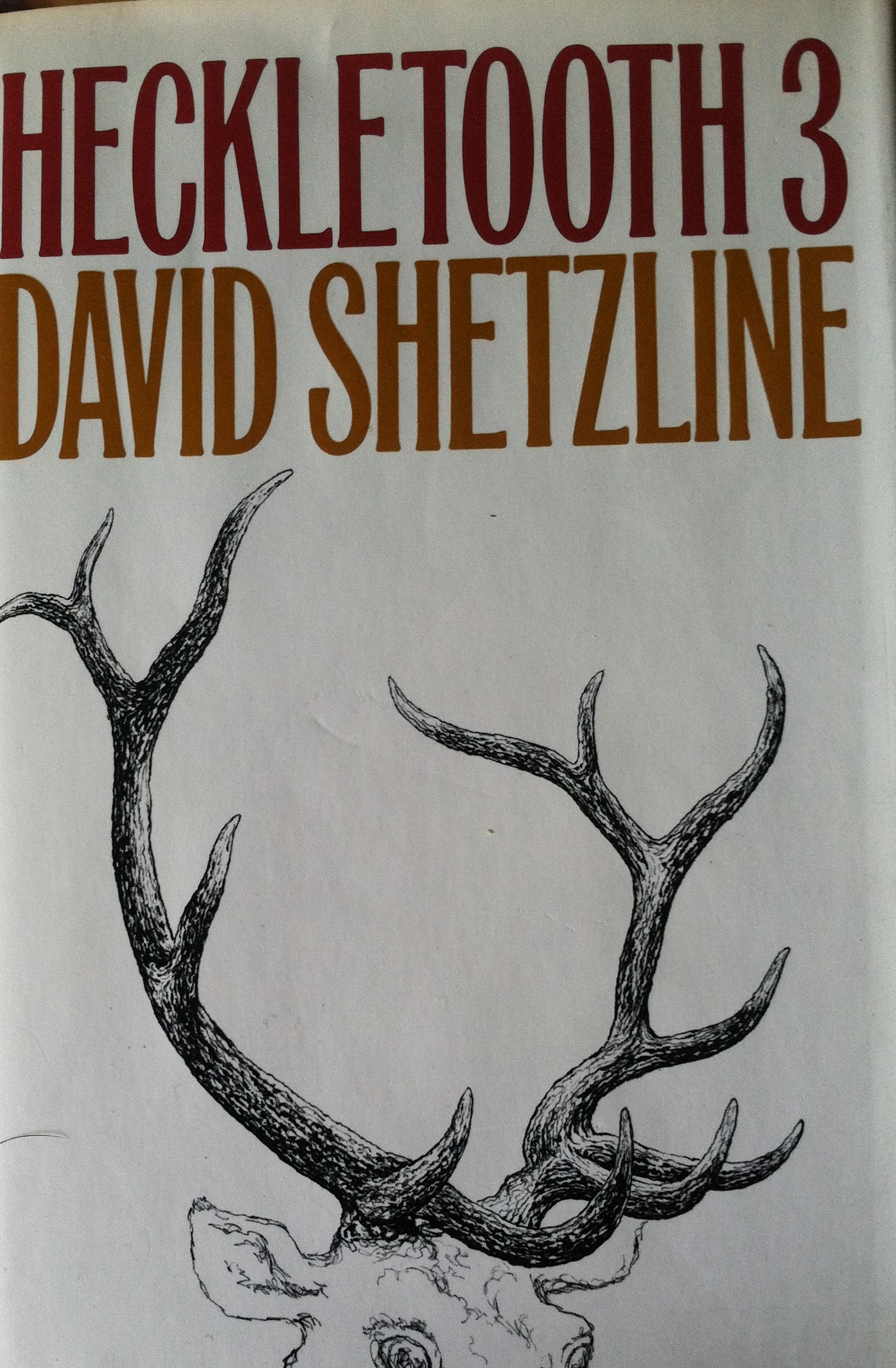Thoughts on Heckletooth 3
The novel is Heckletooth 3 and it was written by David Shetzline and published by Random House in 1969.
It is set on the Southern Oregon Coast in and around Sixes, a forest fire has broken out and the community and the authorities have galvanized to extinguish it. One man, Replogle, a WW II vet, has shot an elk out of season and tries to cover his poaching using the fire and confusion as cover. Meanwhile, other men in the woods fight the fire or pretend to fight the fire, and reflect on their lives and duties and dreams as Americans.
After Ken Kesey’s Sometimes a Great Notion, I would rate Heckletooth 3 as the second best novel ever written where the story unfolds in Oregon. I recently reread it and marveled at the ruggedness of the setting, characters, plot and exploration of the rural American mind. With the exception of one character, a family country doctor, who of course don’t exist in rural America anymore, everything holds up about the novel. These type of men are still living in Oregon’s hinterlands and struggling to make a living while people from the larger cities grow wealthier and distant from nature. The chasm was real then. Think of it today. It’s an ocean.
Interestingly enough, Shetzline wrote about dope coming into the land. He almost anticipates the opiod crisis that is clearcutting its way through rural areas but not the invasion of Dollar General or the Dollar Store. Someone needs to write a novel of that invasion. Shetzline also writes with insight on the relationship of rural men and the various governments that often provide their bread and butter. It is a curious relationship indeed, one I’ve observed up close in my 21 years of living on the Oregon Coast.
The book never went into paperback as far as I can tell, and is almost impossible to find for an affordable price. It has almost entirely disappeared from Oregon’s libraries as well, including all the ones on the Southern Oregon Coast. I’ve talked about Heckletooth 3 with multiple aficionados of Oregon literature and they all feel the same way about it—a regional classic—that somehow must be resurrected. I wish Nestucca Spit Press had the ability to do that.
I reached out to Shetzline a few years ago when I was writing my Lost PNW classics column for the paper then known as the Oregonian. We were tentatively going to meet, somewhere near his home outside of Eugene, but it didn’t happen and I can’t recall the reasons.
He never published another novel that I am aware of and I recently learned he’s in poor health. Where is the Oregon literary community to reprint this novel?
I urge anyone with an obsession with Oregon novels to track this book down. It came out four years after Notion but is entirely of the late 1960s and Vietnam while Notion was set in the 1950s and sounds more honky tonk than rock and roll. Both novels get logging like nothing I’ve ever read. Obviously Shetzline worked in the Oregon woods and it even says so in his biography at the end of the book.
One wonders if there will ever be another novel set in the Oregon woods written by an Oregon writer who worked in the woods and can spin a story out to readers who have never seen the Oregon woods yet live just miles from them. One wonders.
(If you found this post enjoyable, thought provoking or enlightening, please consider supporting a writer at work by making a financial contribution to this blog or by purchasing an NSP book.)

